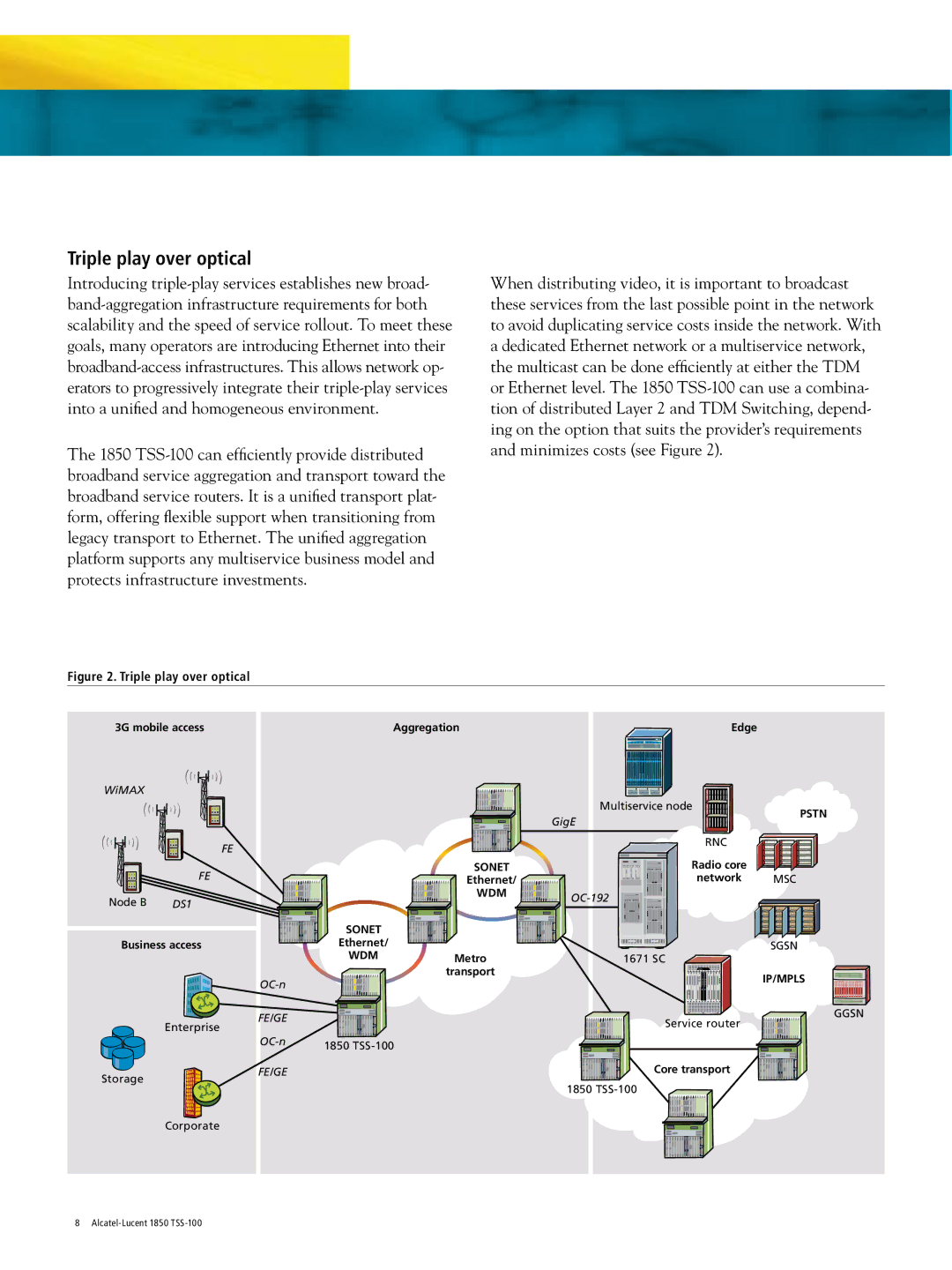
Triple play over optical
Introducing triple-play services establishes new broad- band-aggregation infrastructure requirements for both scalability and the speed of service rollout. To meet these goals, many operators are introducing Ethernet into their broadband-access infrastructures. This allows network op- erators to progressively integrate their triple-play services into a unified and homogeneous environment.
The 1850 TSS-100 can efficiently provide distributed broadband service aggregation and transport toward the broadband service routers. It is a unified transport plat- form, offering fexible support when transitioning from legacy transport to Ethernet. The unified aggregation platform supports any multiservice business model and protects infrastructure investments.
When distributing video, it is important to broadcast these services from the last possible point in the network to avoid duplicating service costs inside the network. With a dedicated Ethernet network or a multiservice network, the multicast can be done efficiently at either the TDM or Ethernet level. The 1850 TSS-100 can use a combina- tion of distributed Layer 2 and TDM Switching, depend- ing on the option that suits the provider’s requirements and minimizes costs (see Figure 2).
Figure 2. Triple play over optical
| Multiservice node | PSTN |
GigE | |
| |
| | RNC |
SONET
Ethernet/ 
WDM 


 OC-192
OC-192
Metro
transport
Radio core | |
network | MSC |
1671 SC | SGSN |
|
| IP/MPLS |
FE/GE
Enterprise
OC-n
StorageFE/GE
Service router
Core transport
8Alcatel-Lucent 1850 TSS-100

![]()
![]()
![]()
![]()
![]()
